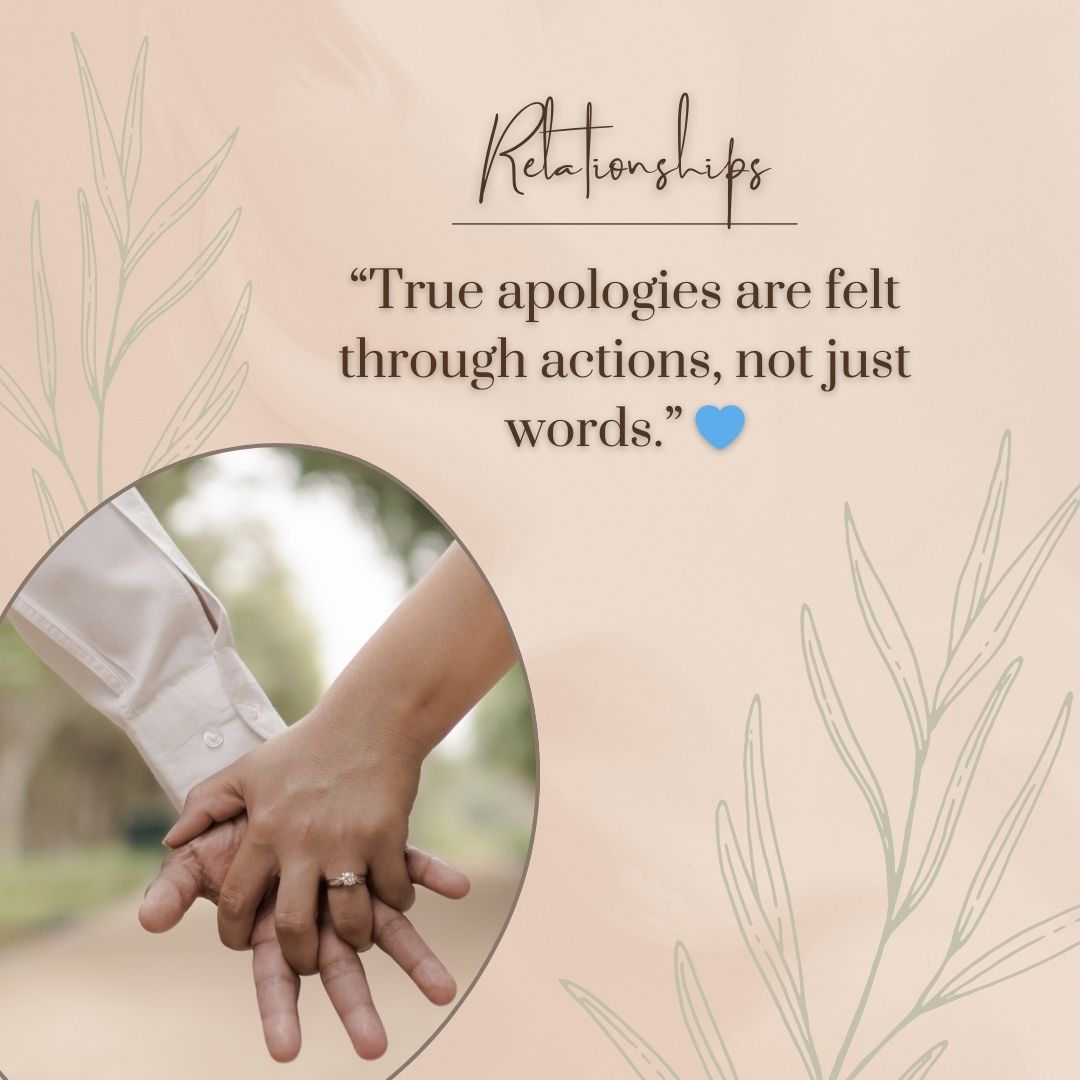Articles, Relationships
Sincere Apologetic Gestures Women Appreciate from Their Husbands or Partners
In the intricate dance of marriage, missteps are inevitable.
While a simple “I’m sorry” can be a start, it’s often the heartfelt gestures that truly mend the rifts. For many women, apologies resonate more deeply when paired with actions that demonstrate understanding, empathy, and a commitment to change. Here are some sincere gestures that husbands can embrace to convey their remorse and rebuild the bond with their wives.
After a disagreement, retreating into silence might seem like a way to avoid further conflict. However, this quiet can amplify feelings of isolation and hurt. Choosing to communicate, even when it’s challenging, signals a willingness to bridge the emotional gap. A gentle touch, a soft-spoken word, or simply being present can speak volumes.
Respecting Her Need for Space
Sometimes, the most loving act is to give your partner the time she needs to process her emotions. Letting her know, “I’m here when you’re ready to talk,” shows patience and respect. This approach allows her to feel supported without feeling pressured.
Owning Up Without Excuses
An apology that shifts blame or includes justifications can feel insincere. Saying, “I was wrong, and I see how it hurt you,” without adding “but” demonstrates maturity and a genuine acknowledgment of the pain caused.
Seeking Her Perspective
Understanding how your actions affected your wife requires active listening. Inviting her to share her feelings without interruption or defensiveness fosters trust. This open dialogue can lead to deeper mutual respect and connection.
Expressing Genuine Empathy
Empathy involves more than just acknowledging pain; it’s about feeling it alongside your partner. Saying, “I can imagine how that must have hurt,” shows that you’re putting yourself in her shoes, validating her emotions, and demonstrating true compassion.
Recognizing the Impact of Your Actions
Beyond admitting a mistake, it’s crucial to understand and articulate how your actions affected your wife. Acknowledging that she felt undervalued or hurt adds depth to your apology and shows that you truly grasp the consequences of your behavior.
Avoiding Conditional Apologies
Phrases like “I’m sorry, but…” can undermine the sincerity of an apology. Taking full responsibility without deflecting or minimizing the issue is essential for rebuilding trust.
Writing a Heartfelt Letter
Sometimes, putting your thoughts into writing allows for deeper reflection and expression. A heartfelt letter can convey remorse, understanding, and a commitment to change, providing a tangible reminder of your dedication to making things right.

Making Thoughtful Gestures
Actions often speak louder than words. Small, considerate acts—like bringing her favorite treat, doing a chore she dislikes, or planning a special evening—can demonstrate your commitment to repairing the relationship.
Following Through on Promises
An apology loses its weight if not accompanied by meaningful change. If you promise to work on certain behaviors, ensure that you actively strive to improve. Consistency in your actions reinforces the sincerity of your words.
Checking In Post-Apology
After apologizing, it’s important to follow up. Asking, “How are you feeling about everything now?” shows ongoing concern and a desire to ensure that healing is taking place.
Revisiting the Issue for Closure
Sometimes, one conversation isn’t enough. Readdressing the topic after some time can provide additional clarity and closure. It signals that you’re still thinking about the issue and are committed to resolving it fully.
Public Apologies When Appropriate
If the mistake occurred in a public setting, a public apology might be necessary. Acknowledging your error in front of others demonstrates humility and a willingness to take responsibility, reinforcing your commitment to making amends.
Planning a Reconnection Activity
Organizing a special activity or date can serve as a gesture of goodwill and a step toward rebuilding intimacy. Whether it’s revisiting a place with fond memories or trying something new together, shared experiences can reignite the bond.
Demonstrating Patience and Understanding
Healing takes time. Being patient and allowing your wife the space to process her emotions without pressure shows respect and a deep understanding of her needs.
In the journey of marriage, missteps are inevitable. However, it’s the sincere efforts to make amends that strengthen the bond between partners. By embracing these gestures, husbands can convey their remorse in meaningful ways, fostering deeper connection and trust in their relationships.

